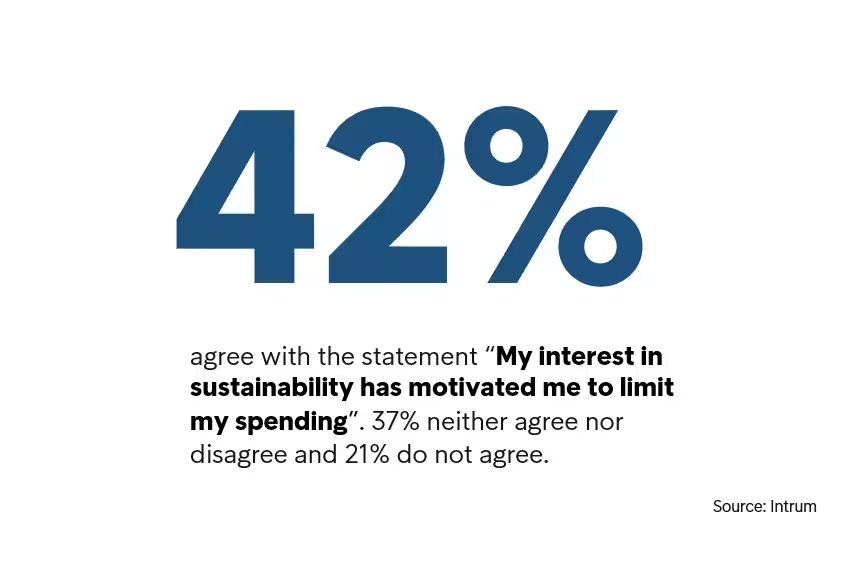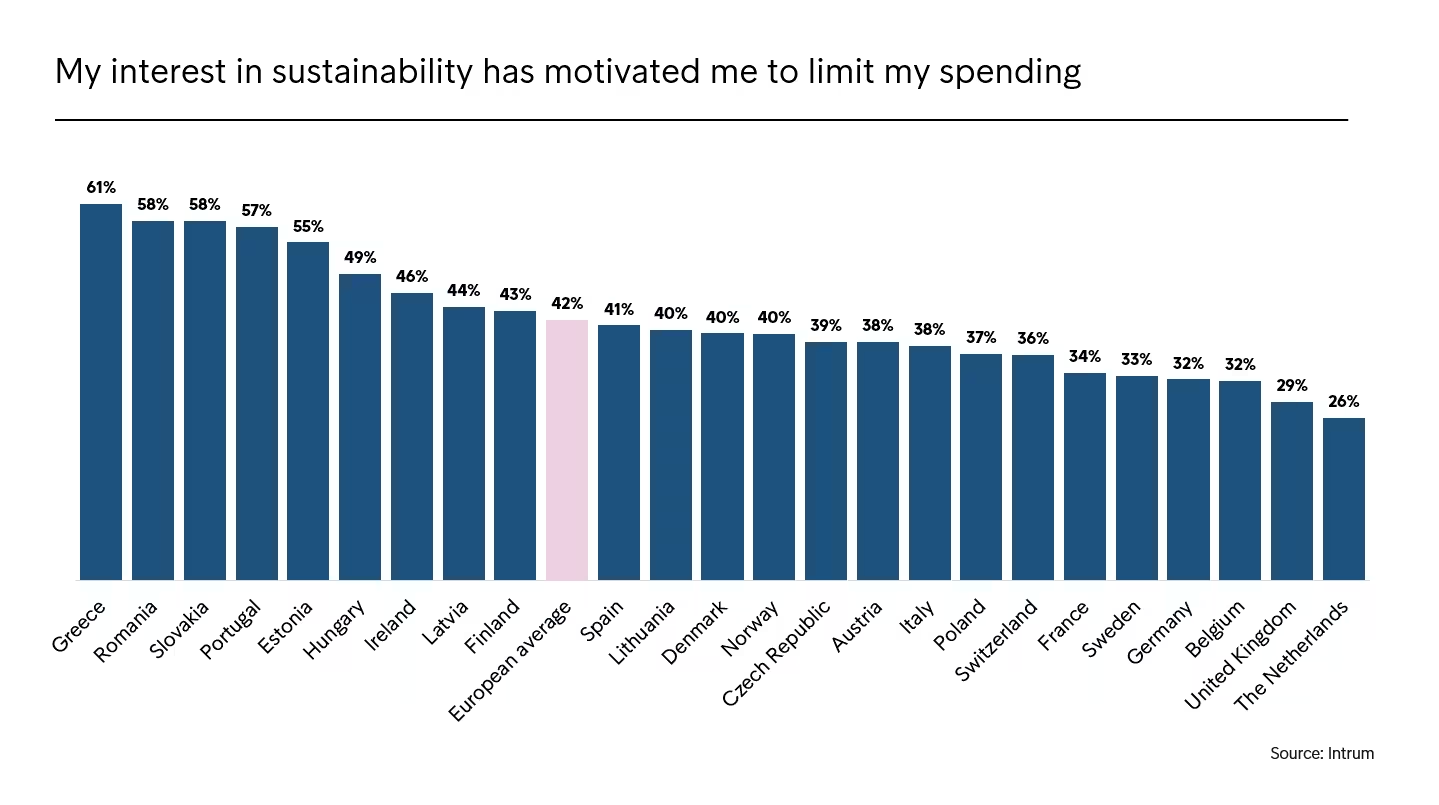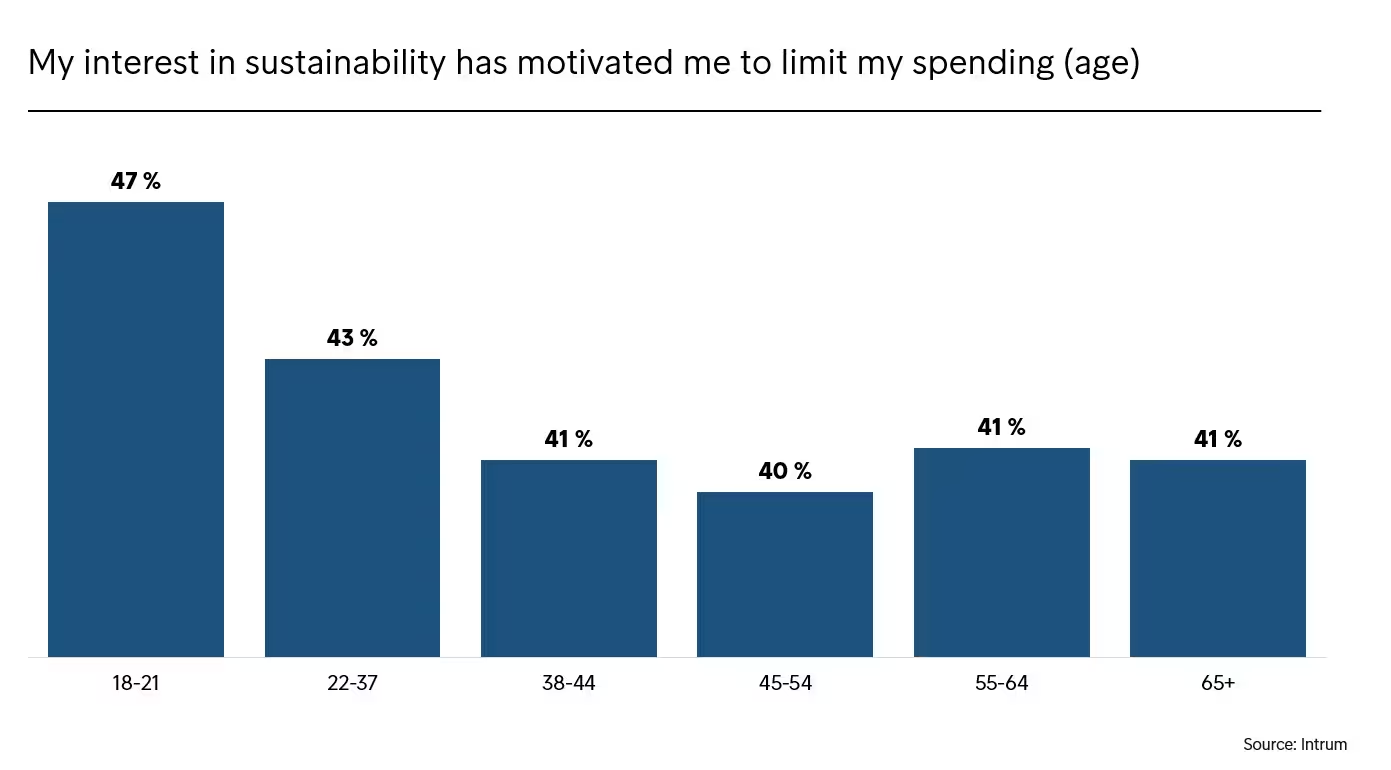Black Friday: Indications of a shift towards a more sustainable consumption among European consumers
4 out of 10 Europeans say their interest in sustainability motivates them to limit their spending. As Black Friday approaches, does this indicate a shift towards a more sustainable consumption?

November 29th is Black Friday, the retail sales phenomenon that began in the United States and spread worldwide. In recent years, the sight of shoppers battling for bargains has become commonplace, but, as sustainability becomes increasingly prominent in society, is our appetite for consumption changing?
In fact, there are signs of a shift in attitudes, if we look at the key findings in the 2019 edition of European Consumer Payment Report (ECPR) from Intrum, which will be published on November 28th.
The report finds that 42 percent of European consumers in 24 European countries agreed with the statement that ‘My interest in sustainability has motivated me to limit my spending’.

The findings are especially notable in Greece (61 percent agreed), Slovakia and Romania (58 percent) and Portugal (57 percent).
However, the argument for change is catching on more slowly elsewhere in Europe. At the other end of the scale, only 26 percent of Dutch consumers and 29 percent of British consumers say that sustainability is curbing their spending habits.

Sustainable alternatives
The headline figures only confirm the growing impact of the debate over how much we consume, as well as the negative impact of over-consumption on the environment and the climate.
Some campaigners regard Black Friday as a clear example, and this year, the White Monday movement, which takes place on Monday November 25th, is encouraging people to shun Black Friday and instead reuse, repair and rent clothing and other goods. In other words, embrace the circular economy by eliminating waste and reusing what we already have.
The event’s organisers, Henning Gillberg and Alexandra Davidsson, describe White Monday as “A slight nudge for both individuals & businesses, to get used to the circular way of consuming.”
Perhaps unsurprisingly given the impact of young climate activists such as Greta Thunberg, it was the 18 to 21-year-old respondents to the ECPR that showed the highest level of agreement (47 percent) with the idea that sustainability limits their spending. But the numbers were at or above 40 percent for every age group overall, showing just how far-reaching the sustainability debate has become.

Social media affects consumer spending
The report also notes social media’s impact on both sustainable and unsustainable spending.
More than three in ten (32 percent) European consumers say social media has increased awareness of buying goods that are ethical and/or sustainable. Finland, Greece and Portugal rank highest in this category.
On the other hand; Unhealthy social media influence is also clear from another survey response: 39 percent of Europeans agreed with the statement that ‘Social media creates a pressure to consume more than I should’.
Sound consumer shopping habits contribute to a sound economy. We in Intrum stand behind thisMikael Ericson, CEO & President at Intrum

About the European Consumer Payment Report survey
Intrum has gathered data from 24,004 consumers in 24 European countries to gain insights into European consumers’ everyday lives, including their spending and ability to manage their household finances on a monthly basis.
The full 2019 edition of the report will be available 28th of November on intrum.com/ecpr2019